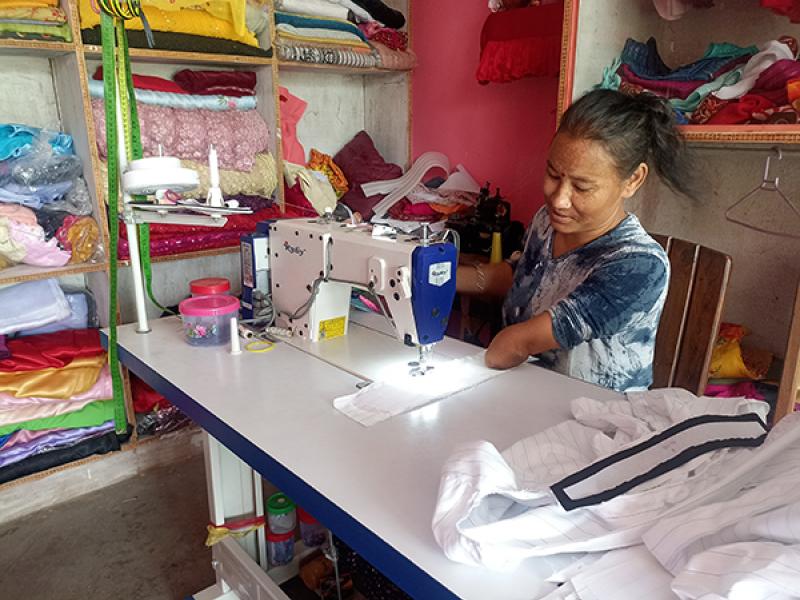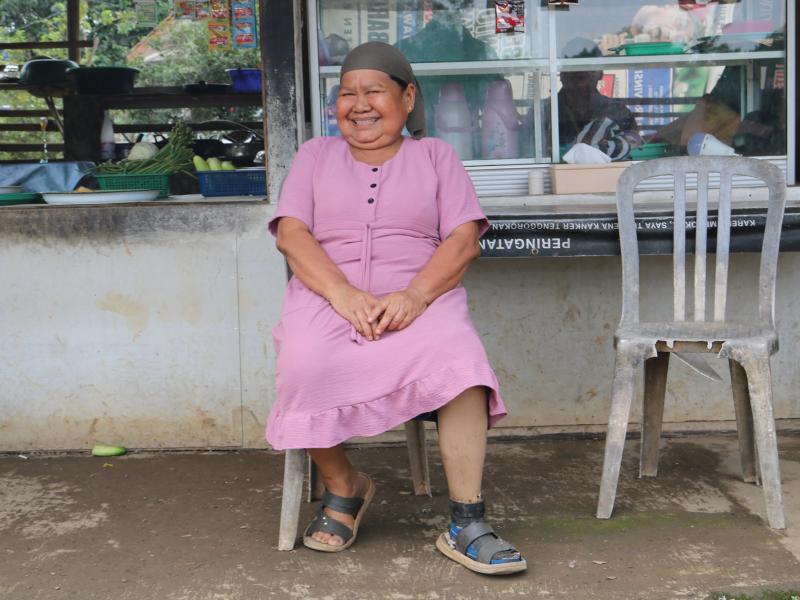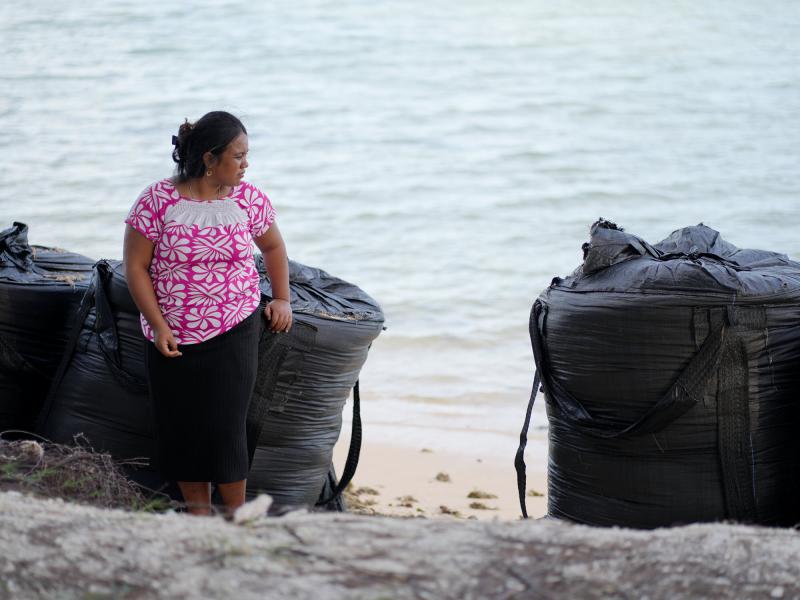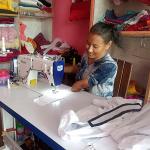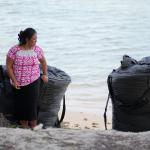International Development policy
Supporting a stronger, safer, and more prosperous Indo-Pacific
Australia's international development policy sets the long-term direction for Australia's development program. It guides how Australia works with partners to advance a peaceful, stable, and prosperous future for our region – ensuring the program is responsive to today's complex and interconnected challenges.
As profound global challenges reshape our world, development needs across the Indo-Pacific and beyond are intensifying. Australia stands with its partners. Our policy positions development assistance as a key pillar of Australia's statecraft – working alongside diplomacy, trade and defence to advance our interests in a fairer, safer and more secure world.
2025–26 Budget highlights
- Record ODA commitment: In 2025-26, the Australian Government will provide $5.097 billion in Official Development Assistance (ODA)—an increase of $135.8 million from 2024-25.
- Regional focus: Three-quarters, or 75 per cent, of Australia's development assistance will benefit countries in the Indo-Pacific in 2025-26.
- Targeted packages: $1 billion for economic resilience, $355 million for climate action, and an additional $81 million for regional health resilience.
For detailed ODA budget information see the 2025-26 Official Development Assistance Budget Summary.
Development priorities
Pacific
Australia's closest neighbours—Pacific Island countries—are central to our development efforts. Their stability, security and prosperity are directly tied to our own. As a trusted and longstanding partner, Australia supports the Pacific family in building a stronger, more resilient region—guided by Pacific priorities and the 2050 Strategy for the Blue Pacific Continent.
We work in partnership with Pacific governments, communities, and regional organisations to deliver Pacific-led, Australian-backed solutions. These efforts support essential services and build resilience to climate, economic and other shocks.
In 2025-26, Australia will deliver a record $2.157 billion in ODA to the Pacific—reinforcing our role as the region's largest and most comprehensive development partner. This investment supports bilateral and regional cooperation, including through the Tuvalu-Australia Falepili Union, the Fiji-Australia Vuvale Partnership, and the Nauru-Australia Treaty.
Learn more about Australia's development cooperation in the Pacific.
Southeast Asia
Australia is deepening our development partnerships with Southeast Asia. In 2025–26, Australia will deliver $1.28 billion in ODA to the region—tailored to mutual priorities such as climate resilience, inclusive and sustainable growth, health security, and stronger communities.
We are strengthening institutional and people-to-people links, including through the Southeast Asia – Australia Government-to-Government Partnerships program, which connects public agencies to build relationships, policy and technical capability.
Learn more about Australia's development cooperation in Southeast Asia.
Building Resilience
Climate Action & Climate Finance
Australia is committed to accelerating the global transition to net-zero emissions and supporting communities at home and abroad to prepare for worsening climate impacts. We are:
- strengthening our previous $2 billion climate finance commitment—expecting to deliver $3 billion in climate finance between 2020–25, largely through existing official development assistance
- deploying innovative financing tools to support climate-resilient infrastructure and clean energy
- working to align international climate finance with decarbonisation and adaptation needs.
Through key initiatives such as the Partnerships for Infrastructure, the Australian Infrastructure Financing Facility for the Pacific and Australian Development Investments, we are investing in numerous climate and clean energy infrastructure priorities for our region.
Humanitarian action
Australia's humanitarian efforts aim to save lives, alleviate suffering, build resilience, and uphold human rights and dignity in crises.
Our 2024 Australia's Humanitarian Policy outlines how Australia harnesses its resources and expertise to better prepare for and respond to humanitarian crises, now and in the future.
Australia will focus on three priorities:
- Readiness and preparedness: anticipating shocks and working with our partners to build resilience before crises strike to lessen their impact
- Crisis response: delivering needs-based, inclusive support to protect those most at risk
- System strengthening: reinforcing adherence to international humanitarian law and strengthening global coordination.
In 2025-26, Australia will provide an estimated $709 million in humanitarian assistance.
Expanding opportunities for everyone
Gender equality, disability equity and social inclusion are central to our development approach—reflecting both Australia's values and our strategic interests.
In 2024-25, Australia launched two flagship strategies, the International Gender Equality Strategy and the Disability Equity and Rights Strategy, lifting our ambition for a fairer, safer region for all.
Key highlights include:
- Mandatory integration: All ODA investments valued at $3 million and above must have a gender equality objective
- Gender performance: 80 per cent of investments must effectively address gender equality in implementation.
- Disability targets: At least 60 per cent of investments must perform effectively on disability equity by 2026—rising to 70 per cent by 2030.
- Funding boosts: Australia increased its central disability funding in 2024-25 to $14 million and allocated $12 million to expand access to assistive technology across the Indo-Pacific.
- New flagship programs: In 2025-26 Australia is investing $25 million for Pacific Strong: Amplifying Action to End Violence against Women and Girls.
- Inclusive communities: Australia has also established a landmark $3.5 million Inclusion and Equality Fund to support, Gay, Bisexual, Transgender, Queer/Questioning, Intersex and Asexual (LGBTQIA+) organisations to catalyse change in their communities.
In 2023-24, Australia invested over $2.3 billion in initiatives that advanced gender equality and more than $1.5 billion in disability equity and rights.
Our performance
Australia is committed to delivering an effective, high-quality development program – one that responds to partner needs, achieves results, and continually improves.
We foster a strong performance culture that generates robust data on performance, drives improvement and promotes accountability. Our performance culture is underpinned by effective senior leadership and governance, and strengthened monitoring, evaluation and learning approaches that use evidence to learn and adapt.
Performance and delivery framework
Our performance and delivery framework helps drive reform and improve how we plan, design, deliver and communicate our results; provide timely and transparent information on investments and performance; and deliver accountability to the Australian Parliament and public.
The framework has four main elements:
- Country and Regional Development Partnership Plans: co-designed with partners to align on shared objectives, expected outcomes, and approaches to evaluation and learning
- A three-tier framework: expanded and more ambitious performance indicators that tracks regional context, what we do, and how we contribute to the Sustainable Development Goals (SDGs)
- Strategic partnership agreements: with multilateral organisations to track results
- Investment-level monitoring and evaluation systems.
Development Partnership Plans
- Africa Regional
- Bangladesh
- Cambodia
- Fiji
- Indonesia
- Laos
- Myanmar
- Pacific Regional
- Papua New Guinea
- Philippines
- Samoa
- Sri Lanka
- Solomon Islands
- South Asia Regional
- Southeast Asia Regional
- Timor-Leste
- Tonga
- Tuvalu
- Vietnam
Development Finance Review
Australia's development policy is informed by the Development Finance Review, which examined how financing tools can enhance the impact of our investments—including in climate and gender.
The Government accepted all eight recommendations from the review and is:
- scaling up existing finance mechanisms
- working more with philanthropic organisations and impact investors to advance shared interests
- strengthening gender equality outcomes, and
- increasing transparency of Australia's development finance.
Development investments
Australia's development investments make us stronger and more influential in the world. They bolster the nation's relationships and competitiveness, support stability, and contribute to a more secure global environment amid rising uncertainty.
Australia provides detailed information on the objectives, results and impacts of our ODA investments through:
- AusDevPortal – detailed project-level information and documents
- Performance of Australian Development Cooperation – annual reports on whole-of-program results and analysis.
Development transparency
Transparency underpins an accountable, effective, and responsive development program. Australia is enhancing visibility of Australia's development assistance efforts through:
- AusDevPortal – A user-friendly hub providing access to project descriptions, expenditure, geographic data and results
- Resumed International Aid Transparency Initiative (IATI) reporting – Australia recommenced annual project-level reporting to IATI in 2024, starting with the 2022-23 dataset, available through the IATI tools and resources.
These efforts support public confidence and improve the accessibility of Australia's ODA data for all stakeholders.
Further resources:
- International Development Policy
- Performance and delivery framework
- AusDevPortal
- International Development policy joint media release
- International Development Policy one year anniversary joint media release
- Australia's new Humanitarian Policy joint media release
- New International Disability Equity and Rights Strategy join media release
- Minister Wong UN Women International Women's Day Parliamentary Breakfast speech
- Minister Wong National Statement to the UN General Assembly speech
- Minister Wong UN summit of the future speech
- Minister Wong Launch of the International Development Policy speech

